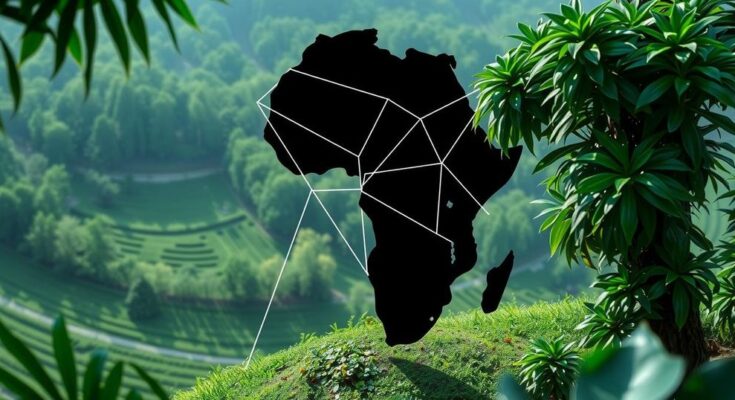The M23 rebel group’s takeover of Goma highlights Rwanda’s proxy actions in the DRC, likened to Putin’s tactics in Ukraine. Rwanda has sent troops into Congo under the pretext of protecting ethnic Tutsis, amidst a backdrop of increasing global aggression. The international response must address Rwanda’s actions to uphold norms against territorial conquest and prevent further escalations of conflict.
The recent seizure of Goma by the rebel group M23 illustrates a troubling situation in the Democratic Republic of Congo (DRC). Much like Vladimir Putin’s actions in Ukraine’s Donbas region, Rwanda’s President Paul Kagame appears to be using proxy forces in a bid to expand territory under the guise of protecting Congolese Tutsis. Despite claiming to act on behalf of these ethnic groups, M23’s actions facilitate Rwanda’s strategic military objectives in the DRC.
Rwanda has sent numerous troops into Congo, while the local conflict leads to widespread suffering, displacing millions. Goma’s capture echoes the annexation tactics seen in Ukraine, contributing to regional instability as the Congolese government struggles against multiple armed factions. Although Rwanda has not explicitly annexed any territory, it has effectively established influence in the eastern DRC, raising concerns about its intentions for future territorial control.
The international response to Rwanda’s aggression indicates a deteriorating adherence to established norms against territorial invasions. The collapse of the taboo against aggressive expansionism has emboldened various global leaders, creating an environment conducive to imperialistic actions. Examples abound beyond Rwanda, such as Russia’s actions in Ukraine and China’s aggressive territorial claims, signaling a return to conquest mentality in global politics.
Rwanda’s interventions are not unprecedented; M23 previously captured Goma in 2012 but faced quick pushback from international actors. Since that time, the UN’s capacity to intervene has waned, and Rwanda has garnered support from new allies like China, Qatar, and Turkey. The changing global dynamics have left Kagame to operate with less scrutiny, with the U.S. policy in flux under recent administrations.
Western nations are also confronted with a moral dilemma; Rwanda’s effective governance has garnered sympathy, complicating criticisms of its actions. However, the international community must reassess its complacency, given Rwanda’s heavy dependence on foreign aid. A unified front demanding accountability could deter Kagame’s aggression, ensuring that incursions like those in Goma do not set a dangerous precedent.
The gravity of letting Rwanda maintain this hold over Congolese territory cannot be underestimated. If aggressive behaviors go unchecked, it would create a more violent international order where might indeed makes right. Diplomats and global leaders must come together to mitigate this emerging threat and uphold international law, preventing further territorial infringements.
The article examines the current crisis in the eastern Democratic Republic of Congo, focusing particularly on the actions of the M23 rebel group and the involvement of Rwanda under President Paul Kagame. Historical parallels with Russia’s annexation of parts of Ukraine are drawn to highlight the broader implications of aggressive territorial claims and the erosion of international norms against such conduct. The struggle in the DRC reflects a complex regional conflict influenced by external powers and internal political instability that demands urgent international attention.
In conclusion, the situation in eastern Congo, marked by the seizure of Goma by the M23 rebels under Rwandan guidance, raises significant concerns about the future of international order. The parallels with Russia’s actions in Ukraine serve as a cautionary tale about the dangers of unchecked imperialism. Acknowledging Rwanda’s aggressive dealings and holding it accountable through diplomatic means is essential to prevent a further deterioration of peace and security in the region and beyond.
Original Source: www.hindustantimes.com




